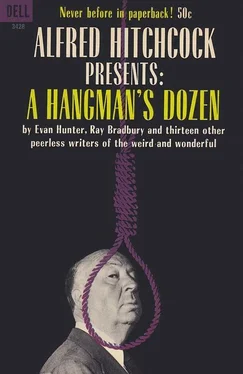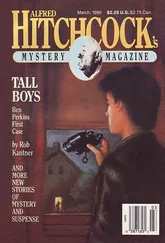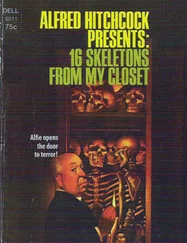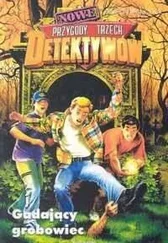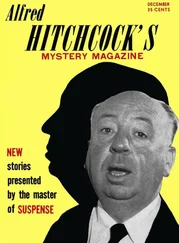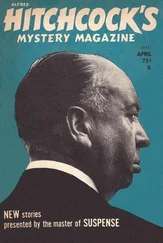And then he’d looked up to find Naomi staring at him accusingly.
“What are you going to do to that poor man?” she had asked.
“I’m going to win my case,” he had answered.
“Your client is guilty.”
“Not until the jury brings in a verdict. Don’t look so shocked, Naomi. You can’t be that naive! A courtroom is just like a battlefield. When a soldier’s ordered to take an objective, he can’t consider if innocent people will be hurt. There are no innocent people; there are only the quick and the dead. I’m one of the quick. Because of that, you live in a beautiful home, wear lovely clothes, drive an expensive sedan—”
“Who is the woman, Arnold?”
And that was when he had stopped evading her.
“I’m not cruel, Naomi; I’m honest. I could lie to you. It would be easy, easier than you know...”
Sitting among the spectators in the courtroom, Naomi learned how easy it was.
“Mr. Babcock—” Arnold swung back to face the witness, his sudden movement and the sound of his voice magnetizing attention. “How long have you been employed at the Century Club?”
The change of tactic puzzled Babcock.
“Ten months,” he said.
“I don’t suppose your salary is anything remarkable.”
“I don’t need much.”
“Still, it’s not comparable to — let us say, an instructor of mathematics and mechanical drawing at Freeman High School, which position you held for fourteen years prior to your employment at the Century Club. Tell me, Mr. Babcock, why does a man of your background work as a porter in a cheap night club? Why are you reduced to pushing a broom and running errands for showgirls? Or does this explain better?”
No one was prepared for Arnold’s next move, least of all Henry Babcock. When Arnold reached out and snatched the glasses from his eyes, Babcock rose from the chair, grasped at empty air, and barely steadied himself against the side of the bench short of falling.
“My glasses—” he gasped.
“Your eyes, Mr. Babcock!” Arnold corrected. “Isn’t it true that you relinquished your profession because you were going blind?”
“No! I had cataracts—”
“Because your vision was eighty-five per cent impaired when you underwent surgery eight months ago? Because you were totally color blind?”
Arnold had won his case. Naomi could sense the feeling of the court even before her ears picked up the murmur. By that time, Henry Babcock was trying to explain that an operation had restored vision to one eye and he was awaiting the required full year before a second operation that would restore the other; but few people heard.
“I’ll be good as new!” he insisted. “I’ll get my teaching job back—”
“But you weren’t ‘good as new’ the night you claim to have seen my client go through a red light!”
“With my glasses, I can see color!”
“Out of which eye?”
“The left eye. The one that had the operation.”
“But the signal is to your right.”
“I turned my head.”
“But you didn’t see Mrs. Thompson.”
“I couldn’t. I can’t see out of the sides — only straight ahead.”
“Only straight ahead!” Arnold pounced on the phrase, as if he had been waiting for it all this time. “And how far straight ahead, Mr. Babcock? As far as from where you are sitting to the defendant — that’s what you said, didn’t you?”
Henry Babcock leaned forward, a grotesque figure of a man trying to peer through a fog.
“With my glasses—” he began.
“Your Honor,” Arnold announced, “I move that the testimony of the witness be stricken from the record. It’s obvious to everyone in this courtroom that he is not capable of giving reliable information on anything of a visual nature. The distance from the witness stand to the defendant, which Mr. Babcock has, under oath, declared to be the same as the distance from the bench on which he was seated at the time of the accident to the point at which the accident occurred, can’t possibly measure in excess of thirty feet. I invite the prosecution to check me on this.” There was no need to check. Naomi, remembering, realized when Arnold had set his trap. He was always dangerous when he smiled. “I have already checked the distance between the bench and the place of the accident,” he added, “and it is, ladies and gentlemen of the jury, exactly sixty-two feet! Not only is the witness color blind, not only is he incapable of seeing out of the sides of his eyes; he is also completely unable to estimate simple distances. Unless he’s deliberately lying about everything, unless he did leave the bench and does know some reason why Mrs. Thompson stepped out in front of a fast moving automobile, the most charitable conclusion we can reach is that this poor man’s mind has been enfeebled by the double tragedy of losing his wife and almost losing his sight, and is incompetent to testify in a court of law!”
The prosecution roared a protest. Arnold turned toward him with a gesture of contemptuous dismissal.
“Your witness!” he said.
The jury was out fifteen minutes. After the acquittal, Arnold received congratulations with his customary indifference. The courtroom emptied. Naomi watched a defeated little man make his way toward the corridor: Henry Babcock, ex-good citizen. She caught his eyes, magnified by the lenses of the glasses, as he went by. It had been murder. He went out and she waited alone for Arnold.
“So that’s how you take an objective,” she said. “Did you have to destroy his character as well as his testimony? Do you think he’ll ever get that teaching job back now?”
“If he’s man enough,” Arnold said. “That’s his problem, not mine.”
“Your problem is only how to get rid of a bothersome wife, isn’t it?”
Arnold didn’t seem to consider the question worth answering. They went out together. The sidewalk was deserted now except for a dejected man waiting at the bus stop, a man for whom Arnold didn’t have so much as a glance. At the entrance to the parking lot, he looked up and frowned at the sky. It was starting to rain lightly.
“I’m glad you decided to visit court today, Naomi,” he said. “I’ve got a five o’clock appointment and it’s the very devil to catch a cab in bad weather.”
“Five o’clock?” Naomi echoed. “That gives you time to pick up flowers. Shall I stop at a florist?”
“No, thank you, Naomi. Just get your car, please. I’ll wait.”
And Arnold waited. He stood at the edge of the parking lot driveway, so supremely confident that he didn’t so much as step back when Naomi brought the sedan around. He didn’t even have time to change his self-satisfied expression to surprise when she suddenly cut the wheels and slammed her foot on the accelerator.
After the police officer had extracted Arnold’s body from under the wheels, Naomi tried to explain.
“It was a mistake!” she sobbed. “I meant to put my foot on the brake, not the accelerator! It was a terrible mistake!”
A small crowd had gathered, but there was only one eye-witness. The officer turned to him, and for a moment Naomi caught a glimpse of the man’s eyes. The sympathy she’d given him in the courtroom was in them.
“If this woman is the victim’s wife, surely she’s telling the truth,” he said. “Anyway, what I might have seen couldn’t contradict her.” Henry Babcock removed his glasses and blinked at the blur which was the policeman. “It’s a legal fact,” he said, “that I’m not a reliable witness.”
One should make a confession of murder properly. As is the case at all social functions, suitable attire is most important. When admitting to first-degree murder, a dark, conservative business suit — in keeping with premeditation — is beyond reproach. Shun the hand-painted tie, the light-colored sock, and the electrified bow tie.
Читать дальше
